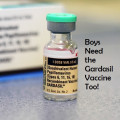America's Lack of Sexual Modesty (...or "Sex & The Prude")
I’m a little reluctant about writing this particular piece. Not because I feel embarrassed about my about my observations and/or stance on the subject, but because when it comes to the issue of sex in America if you’re not sexually adventuresome, then you’re considered “closed-minded,” a “prude,” or assumed to have some “hang-up,” as opposed to being an individualistic thinker. As such, I’ve observed that when it comes to sexual attitudes in America, there is very little in the way of modesty which remains on our sociological landscape.
Take for example the topic of oral sex. Some time ago, I posted a survey question ("Oral Sex") which received so many responses that comments were closed after only a very short amount of time. Before choosing the topic, I had already anticipated the results—that anyone such as myself who is turned off by the notion of oral sex would be judged rather than acknowledged. And true to predicted responses, individuals had myself (and others like me) “diagnosed” with every conceivable psychological pathology under the sun—every possible reason except the most obvious one…that some of us can actually think beyond the herd mentality of reflex conformity.
So how is it that individuals can cut against the psycho-social grain and reject oral sex other sexual practices when so many others’ adherence to these practices “validate” them as normal? As already alluded to, some of us actually have the ability to apply reason to analyze our actions to where we can question whether or not what we do makes any kind of reasonable (or logical) sense. For example, imagine if you could put your head between your legs and pleasure yourself…would you? Would you ingest your own bodily fluids in the name of pleasuring yourself? Would you orally explore your own nether regions in an attempt to reach a climax? If you’re anything like the sexually active teens and adults I have posed this (these) question(s) to—easy in my line of work—then you’ve probably responded in much the same way as 99% of them did…with the most vehement of “hell no’s!” The question then is, why ask or expect someone to do something you wouldn’t do to yourself?
But even more so than rational thinking, it just seems (at least to me) a repulsive form of “pleasure.” The thought of putting one’s mouth in places where it wasn’t meant to be seems degrading. After all, isn’t an invitation to do so often used as a form of personal degradation when one feels slighted? How often have men told women to “Suck my ****!” whenever they are spurned or angered by a woman? Simply put, some of us view it as porn, not actual “sex.” So when it comes to oral sex—as with many things—logic tends to fall short of dissuading most who are hell-bent on blindly pursing physical hedonism, which lacks any rational sense outside of desire.
However, it is not just rational thinking which keeps outside-the bounds-of-conformity thinkers like myself from succumbing to this particular sexual practice. Considerations of possible health issues are also a reason for going against the sociological sexual grain.
Within the last year or so, health care researchers and professionals have been sounding the alarm of the growing link between certain oral cancers and the practice of oral sex. And not surprisingly, a great many people don’t know about this link. But even without the published findings of the research involved, the conclusions drawn by the link could have been just as easily predicted by individuals who were willing to think on a level beyond baser urges and socially accepted “norms.”
With attitudes towards sex in America having become more liberal over the past generation, casual sex—including one-time/”one-night stands” up to and including include oral sex—is directly responsible for an increase in sexually transmitted diseases (STDs). And along with other STDs, the mostly asymptomatic human papillomavirus(HPV) is often transmitted in the course of casual sex, both traditional and/or oral. The virus, which often lays undetected and/or dormant has some 15 strains which, when left untreated causes the majority of all cervical cancers in women. And as one would expect, between the prevalence and often the often stealthy nature of HPV (as many as 4 out of every 5 sexually active individuals in America will contract the disease at some point), the casual attitude toward sex, and the human capacity to override reason, the rate of oral cancers linked to HPV and oral sex—particularly in men with no history of tobacco products—has risen markedly. Consider the following reprinted article on the issue.
HPV Linked to More Oral Cancers than Smoking
The number of head and neck cancers linked to the sexually transmitted human papillomavirus (HPV) has increased sharply over the past two decades, and the virus now accounts for more cancers than tobacco or alcohol, a new study finds.
Researchers tested 271 cancer tissue samples collected from oropharyngeal cancer patients in Hawaii, Iowa and Los Angeles between 1984 and 2004. In 1984-89, about 16% of oropharyngeal cancers — cancers of the tonsils, upper throat and base of the tongue — tested HPV-positive, the researchers found. By 2000-04, the proportion of HPV-positive cancers had risen to 72%.
That means that the rate of HPV-related oral cancer rose from 0.8 cases per 100,000 people in the 1980s to 2.6 cases per 100,000 people in the 2000s — an increase of 225%. At the same time, as cigarette smoking declined, the rate of HPV-negative cancers dropped by 50%, the study found.
Overall, the risk was greatest and rising in men, and the findings suggest that it may have to do with an increase in oral sex. "We believe that sexual habits have changed, and that there is an increase in sexual activity earlier on in life, with an exchange of many more sex partners in general," Dr. Tina Dalianis of the Karolinska Institute in Sweden, who wasn't involved in current study but has conducted previous research on HPV-related oral cancer, told Reuters Health.
HPV is best known as the virus that causes cervical cancer in women, but because of better screening, the rate of such cancers has declined over time. The authors predict that if current trends continue, oral cancers may become the most common HPV-related cancer by 2020, eclipsing cervical cancer.
"The burden of invasive HPV-caused cancers will shift from women to men in the U.S., largely due to the rise of HPV-positive oropharynx cancers among men," study senior author Dr. Maura Gillison of the Ohio State University Comprehensive Cancer Center in Columbus told Cable News Network (CNN).
The good news is that patients with HPV-positive oral cancers have better survival rates than those with cancer due to other causes, possibly because their tumors have less genetic damage, which makes them more responsive to treatment.
"The HPV status of a patient's tumor is the single greatest determinant of whether a person lives or dies after a diagnosis of local-regionally advanced oropharynx cancer," said Gillison. "HPV-positive patients have an approximate 60% reduction in risk of death after their diagnosis when compared to HPV-negative patients."
Most HPV-related oral cancers are caused by HPV 16, a strain that is targeted by the HPV vaccines Gardasil and Cervarix. Vaccination is currently recommended for girls and women to protect against cervical cancer, and the vaccine is also approved for boys to protect against genital warts and anal cancer.
Whether the vaccine could help prevent oral cancer is unknown, but experts speculate that if the vaccine results in fewer HPV infections in women, it could in turn help reduce the rate of infections in men.
The research was published in the Journal of Clinical Oncology.
(Source: "HPV Linked to More Oral Cancers Than Smoking." See also, Time Magazine. May 11, 2007 “Oral Sex Can Add to HPV Cancer Risk.”).
When we are so willing to ignore reason, potential health issues, and whatever remains of our individual reservations, the only conclusion one can draw is that when it comes to sex most of our practices are not so much individual preferences as much as what we learn, accept, and/or tolerate from one another.
Citing my own personal experiences for support, I can’t count the number of frank conversations I have had with adult women who have told me that everything they learned about sex—as it relates to sexual styles and techniques, not basic procedure and/or function—they acquired by either reading romance novels, watching pornography, or conversing with other men, often leading to generalizations about men and sex. Women then conclude that all men like what they learn and that to sexually please a man; they themselves must do this… Or, they become willing to indulge in the fantasies and/or sexual desires of men they acquaint themselves with in order to appear sexually “knowledgeable” and therefore able to “please” any potential in that respect. So the social dynamic we play into is that it’s really other people’s “likes” and “preferences” which influence our own practices rather than our own innate desires and wants. This, in turn, causes individuals to expand both their comfort zones and their personal definitions of acceptable sexual behavior to the point where near-universal practice is presumed to equate to universal like; the “everybody does it, why don’t you” mentality.” Again, I point to personal experience to illustrate the lack of modesty towards sexual behavior in America.
Not long ago, myself and a former female co-worker had been having an adult conversation that found itself drifting to the subject of men and their penchant entertaining themselves at strip clubs. When I revealed that I have never even entertained the desire or curiosity to want to even want to go to a strip club, she and another former male co-worker who had been on the periphery of the conversation wanted to know “why?” My response was (at least to myself) simple in rationality; I simply saw no benefit—on any level—to putting my hard-earned, recession-fought dollars down the thongs of semi-nude women swinging on poles to irritating music. “What’s the point?” I recalled asking. The co-worker replied, “It caters to people’s sexual fantasies. I don’t see anything wrong with it.” My response was that my imagination works fine, and I don’t need such an empty time-consuming public spectacle to spark it.
Both of them were stunned. Not because there was an adult male in America who still didn’t understand the appeal of strip clubs, but because neither could believe that it was an adult who was exhibiting modesty and/or such heretical thinking in defiance of contemporary sexual attitudes. For my rational stance, I was told, “…you are such a prude.” I suppose it’s a good thing that I didn’t tell them further that it makes no good sense for any involved man to pay good money to see strange women pole-dance half-naked in front of them when they have partners at home…they probably would have labeled me demonically-possessed.
Most have fully adopted the assumption that everyone else does or enjoys doing what they do/enjoy sexually, and that those who do not are not worth consideration of either being dating material, a potential mate, or even “normal.” And with sexual attitudes lacking in either modesty or restraint, it’s no wonder we hear almost daily about the sexual indiscretions of politicians, A-list movie stars, and sports figures—high profile people who seemingly have it all but manage to harpoon their stuff-of-fantasies lives with their lack of sexual moderation. Tiger Woods. Arnold Schwarzenegger. Jessica Simpson. Madonna. John Edwards. LeAnne Rimes. The list of high-profile individuals who typify our adherence to a lack of sexual restraint and modesty could fill volumes (and although I’m willing to concede that each of these individuals no-doubt have particular personality and psychological make-ups which contributed to their indiscretions, the overall point is that each succumbed to a way of thinking which has become pervasive within our contemporary thinking with regard to our inability to satiate our desires for sexual satisfaction).
In the meantime, our individual lack of sexual modesty impacts society on the whole. Women will dress up as young school girls in order to sexually turn on men, which contradicts our near-collective agreement that we as a society punish adult men who prey upon under aged females. Dressing up for sexual fun-and-games as a young schoolgirl is OK…as long as the reality doesn’t reflect the fantasy. And we wonder why there are so many adult men who father babies with young teen mothers (yes, it’s more common than we’d like to it is, especially in urban areas). We can go to any city, in any state and find married couples who are willing to swap “spouses” in the name of whatever sexually-based “reason” I cannot fathom. It’s a practice which is a not-too-distant cousin from “sexually-open relationships” or out-in-out extra-marital affairs, which are a seemingly garden-variety occurrence today. What kind of mixed messages are we reinforcing as a society in our search for sexual adventurism?
Sadly, the conclusion is that we live in a sexually-obsessed society where—at the risk of sounding like “prudish”—the perverts make and shape the rules and mores that everyone else is forced to live by. Practices which were once considered illegal sodomy (which implies that not everyone was “doing it”) are now commonplace. This “sexual growth” has become the norm which those of us with a sense of modesty or the strength of rational individuality must adhere to be considered “normal.” Teens, many of them acknowledged as emotionally at-risk or otherwise troubled, are now emulating this lack of sexual restraint and liberal tolerance towards sexual practices that adults exhibit…and suffering by way of exploding rates of STD’s, pregnancies, and various psychological and emotional issues. Once taboo sexual practices are now given the nod of tolerance using the timeless trump-card “reasoning” of if it doesn’t hurt anybody, there’s nothing wrong with it. In the immediate sense, the lack of sexual modesty doesn’t “hurt” anyone, but it does raises the bar (so to speak) for those of us who do have modesty, a sense of morals, self-respect, or whatever you want to call our particular level of social insight. We are forced to raise our level of what we feel to be self-degradation in order to make someone else feel “loved,” and the more people embrace it, the more “abnormal” we become. We cannot be who we are because many want to do what they think is universally accepted or preferred. America’s growing lack of sexual restraint and modesty doesn’t “hurt” anyone? I beg to differ.
It creates a sense of frustration in some to know that too many people apply their particular behavioral standards and expectations to label and ostracize to a degree those from different backgrounds with different levels of thinking. It creates a sense of isolation in those who view too many in the majority as being too quick to assume that someone else’s reluctance to conform to the over-the-top sexual desires of others implies that there is something “wrong” with them, instead of looking at themselves and questioning whether they have conformed to a warped sense of sexuality which has been universally adopted. Many fail to understand that perspectives, even those related to sexual practices, are only relative, and not the universal truths that many think them to be…whether sexual, political, or spiritual. There are no strange behaviors, just behaviors that others do not understand. For whatever reason, we are simply not willing to investigate the behaviors of others, and acknowledge that their behavior makes sense to them. Granted, these insights may run both ways, but then, people like myself are not the ones blindly conforming to America’s growing lack of sexual modesty.
(See also: "New HIV Treatment vs. Sexual Behavior")







